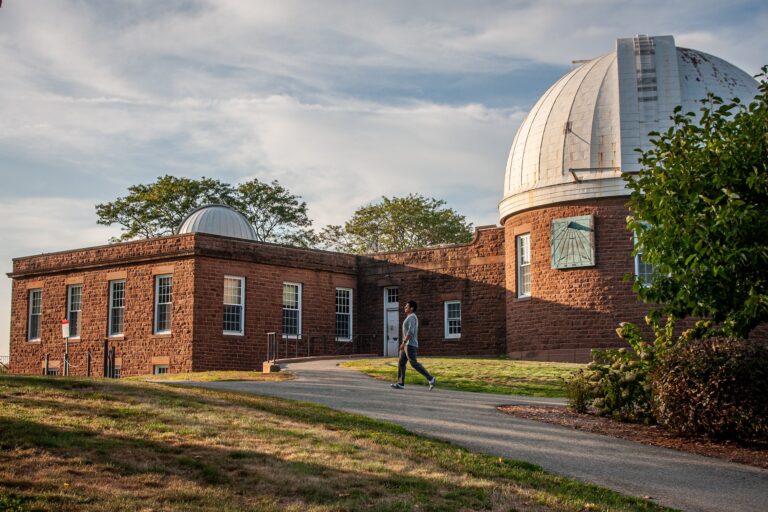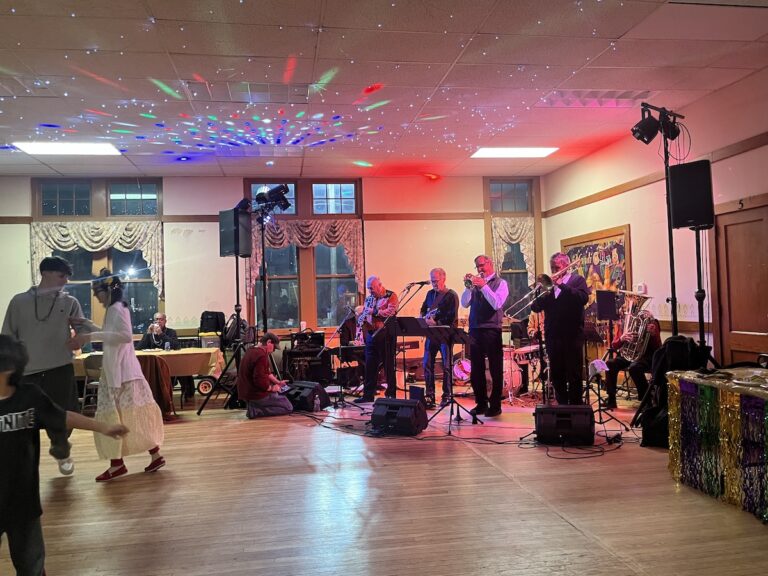Students Find Inner Peace with Transcendental Meditation Club
At the start of his college career, Max Bevilacqua ’12 struggled with constant anxiety, a story familiar to many students at Wesleyan.
“I couldn’t sleep, and I had panic attacks all the time,” he said. “I was just always anxious, which was draining.”
Then his parents suggested that he learn the practice of Transcendental Meditation, often abbreviated as TM. Once Bevilacqua started meditating, he found that his anxiety melted away. He now meditates regularly.
Bevilacqua is one of a few students trying to bring Transcendental Meditation to Wesleyan and to make meditation a more prevalent practice on campus. He teamed up with Madalena Henning ’15 and Yatta Zoker ’15 to found a TM club this year, and the group is looking to expand its reach next semester.
Transcendental Meditation is a simple, mantra-based meditation that centers on bringing the mind to a state of restful alertness. Typically, a person practicing TM sits still, with eyes closed, and allows his or her mind to settle inward. According to TM’s official website, tm.org, the meditator ideally reaches a “state of ‘pure consciousness,’ where the mind is silent yet fully alert.”
“You’re not in a trance or anything like that, nor are you fully awake,” explained Bevilacqua. “It’s easy, effortless, and natural, and the effects of it are astounding.”
Many people have turned to TM to deal with psychological problems or to enhance their mental coherence. Over 600 published studies have found that TM boosts overall mental and physical health.
Both Bevilacqua and Henning credit TM with positively improving their everyday lives and believe it can do the same for other Wesleyan students.
“It’s really changed a lot of things for me,” said Henning. “I used to have pretty bad insomnia, and it’s essentially gone. I’m a writer, and I have a lot of tensions in me, and I just couldn’t unwind at the end of the night. Now I often just get in bed and fall asleep. And if I don’t, I just meditate until I fall asleep.”
The practice of TM has been popular with celebrities for decades. Those who practice TM join the ranks of the Beatles, who meditated under the guidance of Maharishi Mahesh Yogi—the founder of Transcendental Meditation. The program has also recently been gaining more mainstream notice after Oprah Winfrey featured it on her show in March 2012, when she revealed that she and all of her staff practiced TM on a regular basis.
As simple as it seems, the full experience of TM requires guidance from a trained teacher who can help the meditator form a personalized mantra and learn to meditate effectively. Anyone who wants to start practicing TM is told that, to achieve the full effects, they must go through four days of training and practice.
Due to the personalized nature of the training, enrolling in the TM program is on the pricey side: $750 for full-time students. The cost covers the four days of training, but also if you ever want to consult a TM again. Members of Wesleyan’s TM club stress that the lifetime benefits are worth the investment, because after the four days, you can conduct TM on your own. Still, they are working to make the TM program financially accessible to any student who wants to try it.
“Because it does cost money, we’re trying to find ways that we can fund it,” Henning said. “We think it really can have a place on the Wesleyan campus and can help people with their stress and with their anxieties—and just help everyone perform better. Because of the environment of this school and how quirky and independent it is, I feel like meditation would be very successful here if we can just implant it a little bit.”
To gain funding and support, the TM club is turning to Wesleyan’s Student Budget Committee (SBC), as well as the campus’ center for Counseling and Psychological Services (CAPS). They are also seeking support from the David Lynch Foundation, a charity that funds the teaching of stress-reducing practices like TM.
Both Henning and Bevilacqua emphasized that TM can be especially beneficial for college students, who often struggle with stress.
“There are a lot of reports, psychologically speaking, that these are very formative years,” Bevilacqua said. “Certain psychological disorders like schizophrenia, anxiety, and depression tend to pop up between the ages of 18 and 22.”
He added that TM has helped him improve his creative and academic performance—as it has done for many people.
“I think better, I think faster, I write better,” Bevilacqua said. “It’s apparently as restful as sleep, but deeper than sleep with the way the brain is actually working. It can make up for six hours of sleep…it’s like recharging your battery.”
The club’s founders learned TM at home before coming to Wesleyan. Once they got to campus, they got together and began working on outreach. As far as they know, there are the only four people at Wesleyan who practice TM regularly—but they’re working on increasing that number.
“Aside from getting people together, we invited TM teachers from Trinity and New Haven, as well as Hartford, to come and speak and give a lecture, which they did, and it was really great,” Bevilacqua said.
He said that the club’s founders are speaking with administrators at Wesleyan, as well as administrators at other schools, about ways to expand TM’s impact.
“I had a meeting with the head of the counseling department, who was very receptive to learning about TM and to contacting the person who’s also our contact at Trinity about what the next step is to get it integrated onto campus,” Bevilacqua said. “So that’s where we are right now. ”
The TM club is hoping to get more people on board early next semester so that they can get students trained soon.
“If we have enough interest right away, we can probably just get a caravan of people to go to Hartford for those four days sometime in the beginning of the year,” Henning said.
The club’s founders agreed that, beyond recruiting more people to practice TM, they are hoping to spread awareness about the universal benefits of meditation.
“I’d say our goal is not just getting more people, but having meditation not be a fringe thing, but a part of the culture, where it’s not unnatural to see people meditating,” Bevilacqua said. “It shouldn’t be that weird of a thing to see someone just taking some time for themselves. I think that’s something that more people can benefit from in general, in any form.”
All advocates of TM point to its tangible results: heightened creative thought, improvements in attitude and memory, reduced stress, and better long-term health.
“I firmly believe that if everyone did TM, the world would be a very, very different place,” Bevilacqua said.
Students, faculty, or staff who are interested should contact Bevilacqua and Henning via email at: mbevilacqua@wesleyan.edu and mhenning@wesleyan.edu.







Leave a Reply